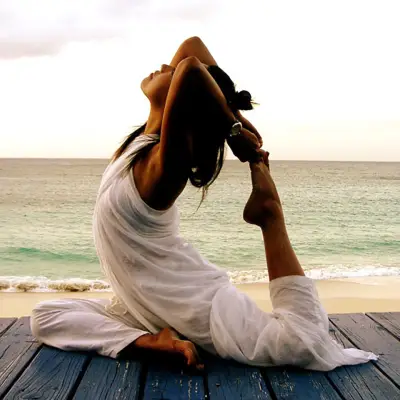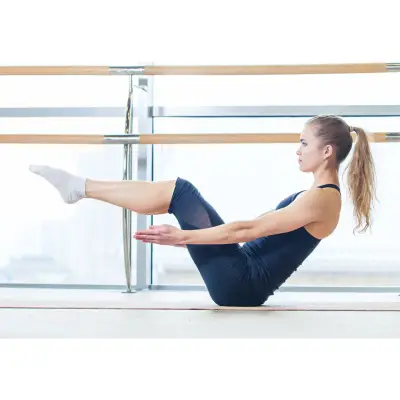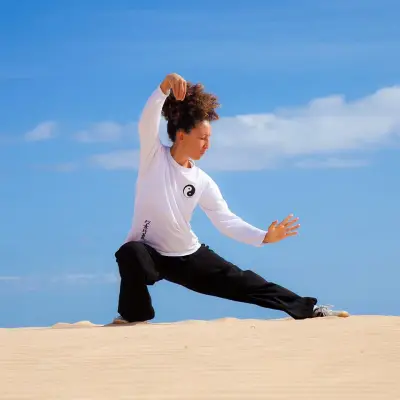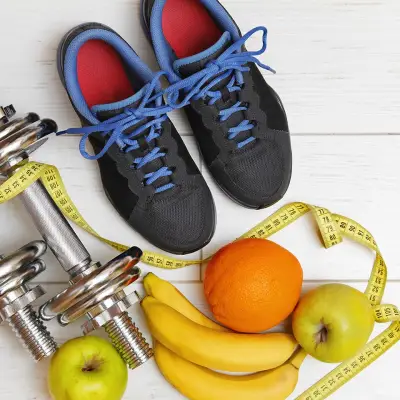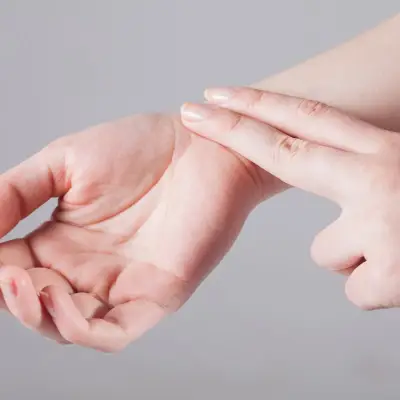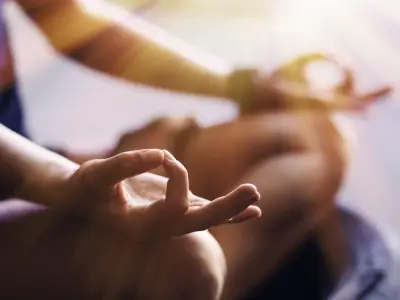When it comes to fitness and wellness, the choice between yoga and Pilates can be a bit of a conundrum. Both offer a host of benefits, but which one is right for you? Whether you're a beginner looking to dip your toes into the world of mindful movement or someone seeking to deepen your existing practice, understanding the differences and benefits of yoga and Pilates can help you make an informed decision.
In this post, we'll explore what makes each discipline unique, their benefits, and how to choose between them based on your personal goals.
Jump to:
Recommended for you!
Best SellersWhat is Yoga?
Yoga is an ancient practice that originated in India over 5,000 years ago. It's a holistic discipline that encompasses physical postures (asanas), breathing techniques (pranayama), meditation, and ethical guidelines. Yoga aims to unite the mind, body, and spirit, promoting overall well-being and inner peace.
Key Benefits of Yoga
- Flexibility: Regular yoga practice can significantly improve your flexibility and range of motion.
- Strength: Many yoga poses require you to support your body weight in new ways, helping to build muscle strength.
- Stress Relief: Yoga incorporates breathing exercises and meditation, which can reduce stress and promote relaxation.
- Balance and Posture: Yoga poses often involve balancing, which can improve your overall balance and posture.
- Mental Clarity: The meditative aspects of yoga can enhance mental clarity and focus.
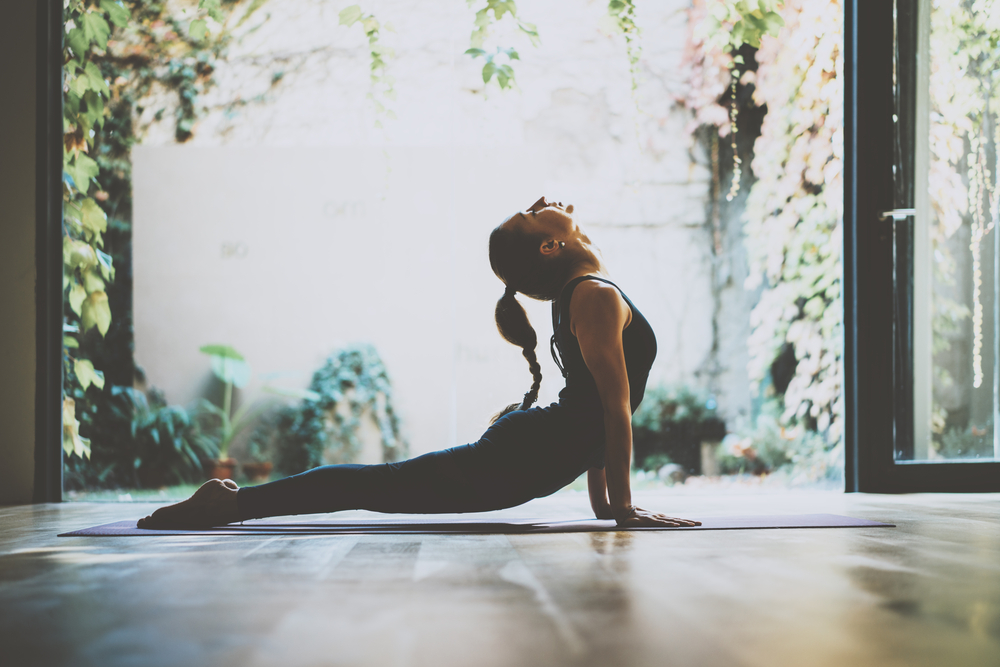
What is Pilates?
Pilates is a physical fitness system developed in the early 20th century by Joseph Pilates. It focuses on strengthening the body's core muscles, including the abdomen, lower back, hips, and buttocks. Pilates exercises can be performed on a mat or using specialised equipment like the Reformer, which adds resistance to the movements.
Key Benefits of Pilates
- Core Strength: Pilates is known for its ability to strengthen the core muscles, which support overall body strength and stability.
- Posture: Pilates emphasises proper alignment and posture, which can lead to better body mechanics and reduce the risk of injury.
- Flexibility: Like yoga, Pilates can improve flexibility, especially in the spine and hamstrings.
- Low-Impact: Pilates exercises are low-impact, making them suitable for people with joint issues or those recovering from injury.
- Mind-Body Connection: Pilates encourages a mind-body connection, focusing on precision and control in each movement.
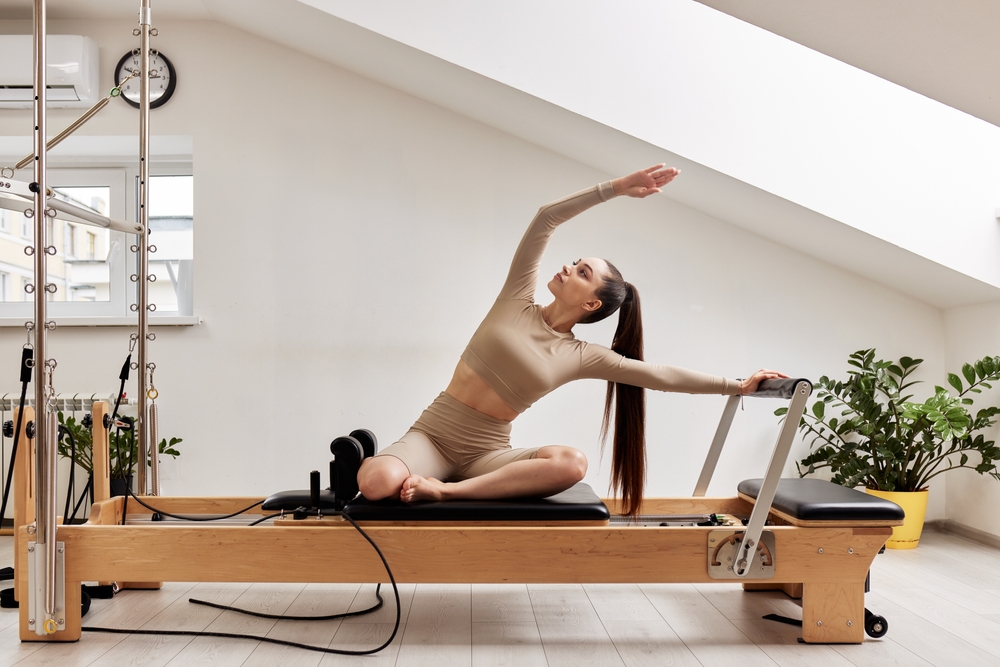
Differences Between Yoga and Pilates
Origin and Philosophy
- Yoga: Originated in ancient India, encompassing a spiritual and holistic approach to health and wellness.
- Pilates: Developed in the 20th century by Joseph Pilates, focusing on physical fitness and core strength.
Focus
- Yoga: Combines physical postures, breathing exercises, and meditation to promote overall well-being.
- Pilates: Emphasises core strength, alignment, and controlled movements.
Practice and Equipment
- Yoga: Primarily involves mat-based exercises, though some styles use props like blocks and straps.
- Pilates: Can be performed on a mat or using specialised equipment like the Reformer, which adds resistance.
Yoga vs Pilates for Beginners
When starting out, both yoga and Pilates offer beginner-friendly options. However, the choice between the two can depend on your personal goals and preferences.
Yoga for Beginners
- Variety: There are many styles of yoga, from gentle and restorative to vigorous and athletic.
- Accessibility: Yoga can be practised anywhere with minimal equipment, making it easy to get started.
- Mindfulness: Yoga's emphasis on mindfulness and meditation can be beneficial for mental health.
Pilates for Beginners
- Core Focus: If your goal is to strengthen your core, Pilates is an excellent choice.
- Guided Instruction: Pilates classes often involve more guided instruction, which can be helpful for beginners learning the correct form.
- Low-Impact: The low-impact nature of Pilates makes it suitable for those with joint issues or injuries.
What is Better for Beginners: Yoga or Pilates?
Both are suitable for beginners, but the choice depends on your goals. If you want to improve flexibility and mindfulness, start with yoga. If your goal is core strength and better posture, try Pilates.
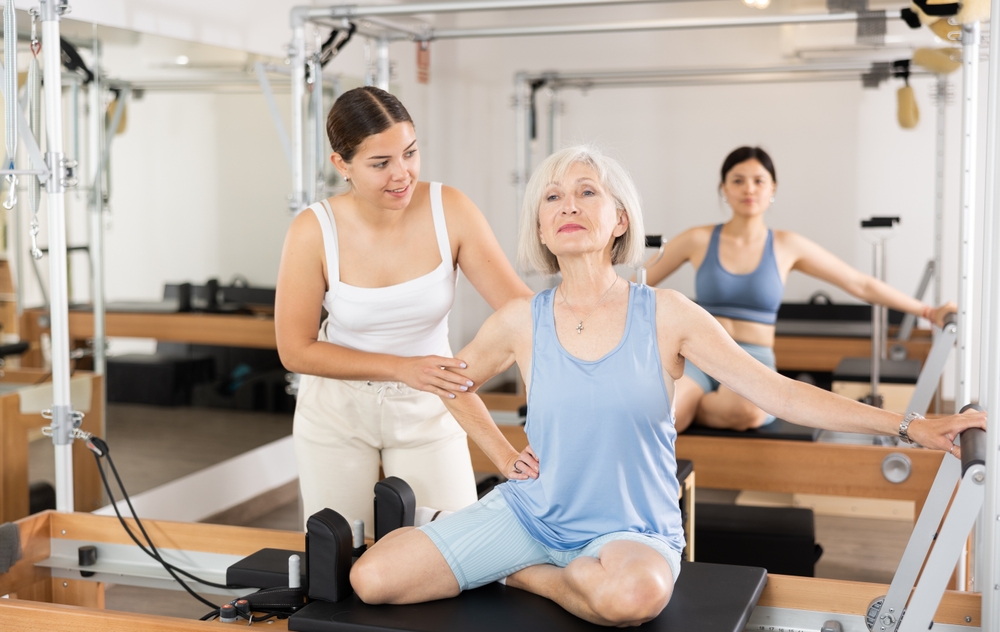
Yoga vs Pilates: Which is Better for You?
The decision between yoga and Pilates ultimately comes down to your personal goals and preferences. Here are some considerations to help you decide:
If You Want to Improve Flexibility and Reduce Stress
Choose Yoga: Yoga's combination of stretching, breathing exercises, and meditation is ideal for improving flexibility and reducing stress.
If You Want to Strengthen Your Core and Improve Posture
Choose Pilates: Pilates' focus on core strength and proper alignment makes it the go-to choice for those looking to improve their posture and build a strong core.
If You Have Joint Issues or Are Recovering from Injury
Choose Pilates: The low-impact nature of Pilates exercises can be gentler on the joints, making it suitable for injury recovery.
If You Enjoy a Holistic Approach to Fitness
Choose Yoga: Yoga's incorporation of physical, mental, and spiritual elements offers a comprehensive approach to wellness.
Can You Do Both Yoga and Pilates?
Absolutely! Many people find that combining yoga and Pilates offers the best of both worlds. The flexibility and mindfulness gained from yoga can complement the core strength and alignment benefits of Pilates.
Frequently Asked Questions
Is Pilates More Active Than Yoga?
Pilates can be more intense in terms of core engagement and muscle strengthening, but yoga can also be physically demanding depending on the style.
Does Pilates Tone More Than Yoga?
Pilates is particularly effective for toning the core muscles, while yoga provides a more balanced approach to overall muscle toning.
Is Yoga or Pilates Better for Belly Fat?
Both can help with weight management and reducing belly fat when combined with a healthy diet and lifestyle. Pilates focuses on core strength, which can directly impact the abdominal area, while yoga can help reduce stress, which is often linked to weight gain.
Why Do People Prefer Pilates Over Yoga?
Some people prefer Pilates because of its emphasis on core strength and controlled movements. Others may prefer the structured environment and guided instruction.
Why is Pilates Harder Than Yoga?
This perception can vary from person to person. Pilates can feel more challenging due to the intense focus on core strength and precision. However, some styles of yoga, like Ashtanga or Power Yoga, can be equally demanding.
How Often Should You Do Yoga or Pilates?
For optimal benefits, aim to practice yoga or Pilates at least 2-3 times per week. This frequency allows your body to adapt and improve without overtraining.
Recommended for you!
Best SellersStudy Yoga and Pilates for £29 Each
Why not take your practice to the next level with Centre of Excellence? Our Yoga Diploma Course and Pilates Diploma Course are designed to help you master the fundamentals and beyond, and are perfect for those considering teaching these classes. For a limited time, you can enrol in either course for just £29.

